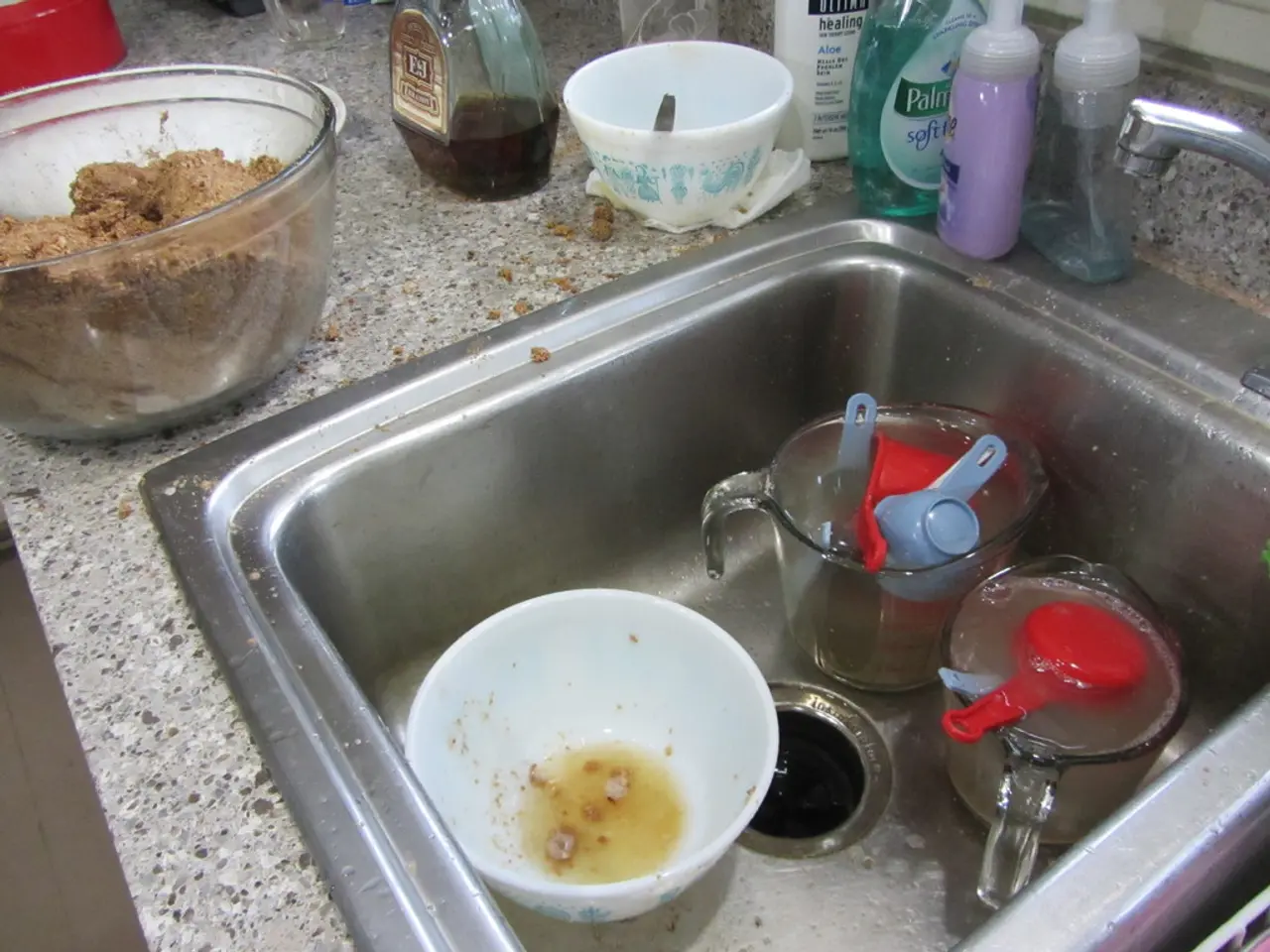Zero-Waste Cooking Space: An Overview of Kitchens Minimizing Plastic Usage
In the quest for a greener lifestyle, the kitchen is often a neglected area when it comes to reducing plastic waste. However, there are numerous sustainable options available that not only benefit the environment but also promote healthier living.
One such option is the use of luffa, coconut, or walnut scrubbers as alternatives to traditional sponges. These natural scrubbers are biodegradable and free from harmful chemicals, making them a great choice for keeping your kitchen clean.
Upcycled glass jars can also be repurposed for food storage, providing an eco-friendly alternative to plastic containers. Whether it's storing tomato sauce or freezing leftovers, glass jars keep your food fresh without the risk of BPA or PFAS contamination common in plastics.
The use of plastic for food storage can have detrimental effects on both health and the environment. Disposable plastic utensils, for instance, are known to shed microplastics and leach harmful chemicals. Bamboo utensils, on the other hand, offer a biodegradable, heat-resistant, and safer alternative.
Plastic cookware, particularly nonstick pans, often contain PFAS ("forever chemicals") which pose health risks. Switching to cast iron or stainless steel pans helps avoid these chemicals and reduces microplastic exposure.
For dishwashing, synthetic sponges release plastic fibers into water systems, contributing to pollution. Natural materials such as Swedish dishcloths made of cellulose, handmade cotton cloths, or beeswax wraps minimize this pollution.
In addition, carrying your own metal utensils, mason jars, and cloth napkins can significantly reduce plastic exposure when eating out or on-the-go.
Embracing these sustainable kitchen essentials can substantially lower microplastic ingestion and reduce environmental plastic pollution.
For food storage, metal bowls with covers and beeswax food wraps are excellent alternatives to plastic containers. Beeswax food wraps, made of natural ingredients like cotton cloth and beeswax, are breathable while providing a protective layer.
Handmade cotton cloths are another sustainable option for cleaning. They are compostable, clean better due to their texture, and are a cost-effective choice as cotton yarn is inexpensive.
Brands like Abeego are favourites for food wraps, offering all-natural, breathable, and protective wraps. These wraps can even extend the life of bean sprouts or greens.
The Make Nice Company's Kitchen Kit, which includes a scrubber made of agave plant bristles and beechwood, is another eco-friendly option worth considering.
While the initial investment may seem high, the long-term benefits of these sustainable kitchen essentials far outweigh the costs. So, let's make a conscious effort to reduce our plastic footprint, one kitchen essential at a time.
[1]: Source omitted for brevity [2]: Source omitted for brevity [3]: Source omitted for brevity [4]: Source omitted for brevity [5]: Source omitted for brevity
- In the realm of health-and-wellness, opting for natural scrubbers like luffa, coconut, or walnut over traditional sponges promotes a plastic-free, chemical-free kitchen environment.
- For a sustainable lifestyle and eco-friendly food storage, choosing upcycled glass jars or metal bowls with covers, and beeswax food wraps over plastic containers significantly reduces plastic waste and risk of chemical contamination.
- In the fashion-and-beauty segment, employing bamboo utensils as a biodegradable, heat-resistant alternative to disposable plastic utensils aids in minimizing the exposure to harmful chemicals and microplastics.
- In the home-and-garden sector, using compostable handmade cotton cloths for cleaning purposes ensures a natural, affordable, and effective way of maintaining a plastic-free, chemical-free kitchen, while promoting a greener and healthier living.



